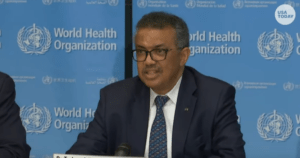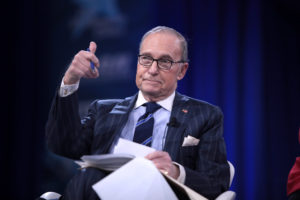Marie Cocco: Cash Bash 2006
The McCain-Feingold campaign finance reform bill has proved about as effective a barrier as tissue paper in keeping special-interest money out of elections.WASHINGTON — What do you get when you marry the congressional cavalcade of corruption with the latest reform law aimed at cleaning up the campaign finance system? The usual lineup of special interests donating an unusually large amount of money to congressional campaigns.
November’s midterm congressional elections are on course to be the most expensive ever, exceeding the off-year record set in 2002. By early summer, well before most Americans were exposed to the TV ads that turn off even the most politically tuned-in viewer, the two parties, interest groups and candidates for House and Senate had raised about $1.7 billion, according to the Center for Responsive Politics. “We’re at least on track to match, if not exceed, the $2.2 billion that was spent in the last midterm election,” says Sheila Krumholz, executive director of the nonpartisan research group, which tracks political money.
This, mind you, comes after the Jack Abramoff scandal. After the Tom DeLay scandal, the Duke Cunningham bribery scandal, the William Jefferson money-in-the-freezer scandal. After exposure of the K Street Project, which linked lobbyists on Washington’s boulevard of corporate dreams to lawmakers on Capitol Hill. It comes after unsavory news about all manner of shady deals or, at least, a pattern of self-serving (and often, self-enriching) relationships among lobbyists, donors and lawmakers.
This also is the first midterm election being conducted under fundraising rules set out by the McCain-Feingold campaign finance reform law. The law sure hasn’t taken the money out of politics. Every day, it seems, breathless Democrats excited at the prospect of taking control of one or both houses of Congress boast that they’re benefiting from a surge of money coming in late to party and campaign coffers. Every day, it seems, Republicans answer that they’ve got as much — if not more — money to keep their incumbent lawmakers “competitive.”
What McCain-Feingold appears to have done so far, says Krumholz, is shut down the soft-money spigot that big donors used to bypass donation limits — just as intended. Yet just as most people who follow the money predicted, the money has found another route into campaigns. Political action committees — the reformers’ chief enemy during the 1980s — are back, big-time. So are “leadership” PACs, through which congressional heavyweights collect donations from, say, lobbyists and other interests who want something done, and then move it around to challengers or members with less stature and power.
Business interests still are the leading financiers of campaigns, dwarfing donations from organized labor, ideological interest groups and others. And corporate America continues to hedge its bets: It has so far given 57 percent of its money to the ruling Republicans and 42 percent to Democrats, according to Federal Election Commission reports analyzed by the center.
This isn’t exactly what the public wants after a season of scandal. Congress left town having done nothing about lobbying reform or ethics enforcement. And it didn’t even try to touch the third rail that drives it all: a campaign finance system in which private interests finance the campaigns of those who are supposed to work in the public interest.
“America has never had greater leadership in the arts, in business, in every field of academia,” Rep. Jim Leach, the veteran Iowa Republican who’s been a longtime advocate of campaign finance revision, said in an interview. “And yet there is this pervasive sense that the political system is letting us down.”
Leach, who accepts neither PAC money nor funds from out-of-state donors, is one of two incumbent Republicans who’ve endorsed a comprehensive reform plan that links ethics and lobbying restrictions with campaign finance revisions that would introduce public financing and spending limits to congressional campaigns. The other — among about 350 candidates who’ve signed Common Cause’s “Voters First” pledge — is Rep. Todd Russell Platts of Pennsylvania. The rest are Democrats and minor-party candidates. Voters can find out if candidates in their district have taken the pledge by perusing the list at www.votersfirstpledge.org.
If Democrats manage to take control of the House, they’ll have to make good on their promise to ban lawmakers from accepting gifts and travel from lobbyists, prohibit official travel on corporate jets and toughen other ethics rules. But they may well develop a more powerful urge to shake the money tree. It is what incumbents do. But Democrats, be forewarned. It is also how incumbents eventually become like those bums the voters, every so often, rise up and throw out.
Marie Cocco’s e-mail address is mariecocco(at symbol)washpost.com.
Your support matters…Independent journalism is under threat and overshadowed by heavily funded mainstream media.
You can help level the playing field. Become a member.
Your tax-deductible contribution keeps us digging beneath the headlines to give you thought-provoking, investigative reporting and analysis that unearths what's really happening- without compromise.
Give today to support our courageous, independent journalists.






You need to be a supporter to comment.
There are currently no responses to this article.
Be the first to respond.